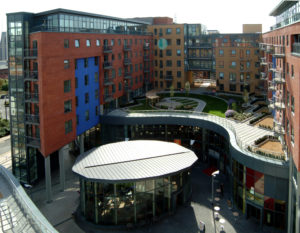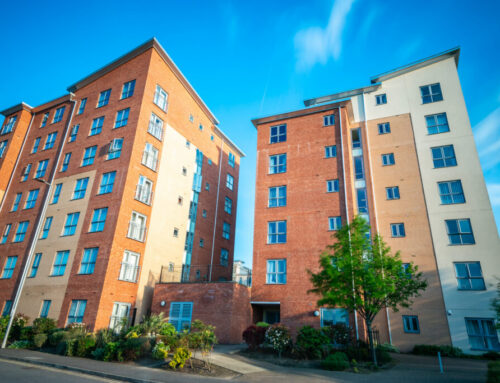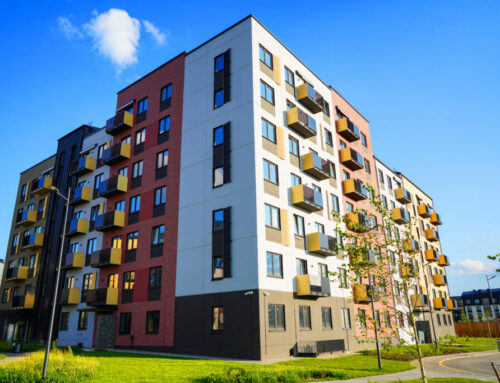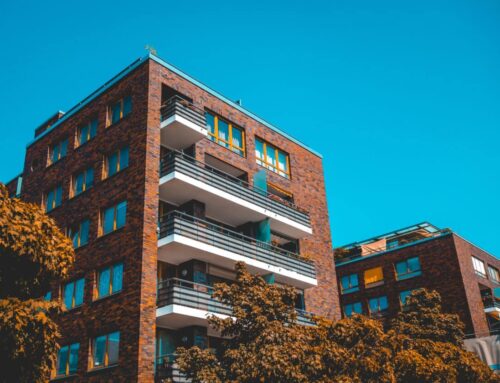
Why is community important?
Whether sharing a block of flats, living in a detached house or living on a gated estate, there is one thing we all have in common: the sense of community. Often the community of your surrounding area can heavily influence your living conditions which is why it’s important to encourage positive residential behaviours.
The benefits of a happy neighbourhood:
Many people view their neighbours as a staple of their community. According to Property Reporter, 54% of people are on a first-name basis with their immediate neighbours. On top of this, 29% would allow their neighbours to have a key to their property. Considering the level of trust this normally requires, it is easy to see how our neighbours have become an essential component of a happy living situation.
Are we nosy neighbours?
As a nation, we have a common trope of being ‘nosy neighbours’ – looking over the fence, peeking behind curtains and gossiping with others on our street. However, is this really such a bad thing? A study conducted by Arlo Technologies looked at the ‘nosiness’ of Britain’s neighbourhoods, and stated that 46% of participants admitted to snooping on neighbours.
However, according to London Loves Business, these results convey a deeper meaning- one which presents British communities as “helpful and kind”, with nosiness acted on out of good intentions. Furthermore, 61% of participants said that it gave them a sense of “staying connected” with occurrences in their area, meaning they felt up to date with what was going on and were more eager to get involved. Additionally, this study revealed that 8 out of 10 respondents said they both liked and were friends with their neighbours – an indubitably positive result.
Do neighbours make our communities more secure?
Chairman of the Neighbourhood Watch Network, David Huse, claims that “being a good neighbour has huge benefits and makes your community friendlier and safer too.” He also states that neighbours even play an important role in crime prevention by looking out for those who are elderly or vulnerable, meaning homes are kept more secure.
Arlo Technologies also commented on how neighbours work together to build a safer community. According to their study, 46% of residents said they actively used social media and messaging such as Facebook and WhatsApp to keep fellow residents updated re any local security issues or anti-social behaviour, further illustrating the importance of neighbours to local security.
Neighbourly disputes.
Neighbourhood disputes can be an unfortunate occurrence in even the most peaceful communities. According to a study by the Co-Op, over 2 out of 5 of us have had a disagreement with our neighbour.
This study also reveals a distinct difference between renters and homeowners. According to the survey, renters were more likely to think they were a bad neighbour due to playing loud music (13%) as opposed to only 3% of homeowners admitting to thinking they were disruptive. Additionally, the study showed a difference in the way disputes were resolved, with 16% of homeowners saying they complained to their neighbour, whilst only 8% of renters decided to speak to their neighbour personally.
How can you solve disputes?
Should you find yourself in the middle of a neighbourly dispute, you should be as reasonable as possible to avoid building further conflict. As stated by GOV.UK, there are six steps to bear in mind when solving any disagreements:
- Talk to your neighbour informally about the issue.
- Contact their landlord (if this option is available to you).
- Raise the issue formally through a mediation service.
- If the disagreement is about a statutory nuisance try complaining to your local council (i.e. loud music, noise or barking dogs).
- If your neighbour is violent or aggressive towards you, contact the police.
- As a last resort you can take legal action through the courts.
Most of the time, issues will be small and easily reparable with consideration from both you and your neighbour. Remember to remain calm and reasonable throughout any disputes, and trust that your community will band together to solve any underlying issues. Should this not be enough, mediators and authorities can always be contacted.
Whilst neighbourhoods can sometimes be difficult to navigate, the pros of a tight-knit community often outweigh the cons, making local areas more secure, friendly and inclusive of all tenants – that is why it is important to maintain happy and healthy relationships between you and your neighbours.




Leave A Comment